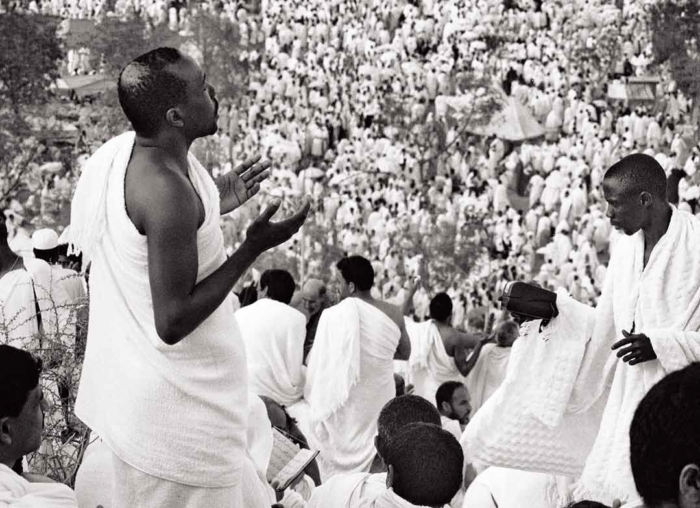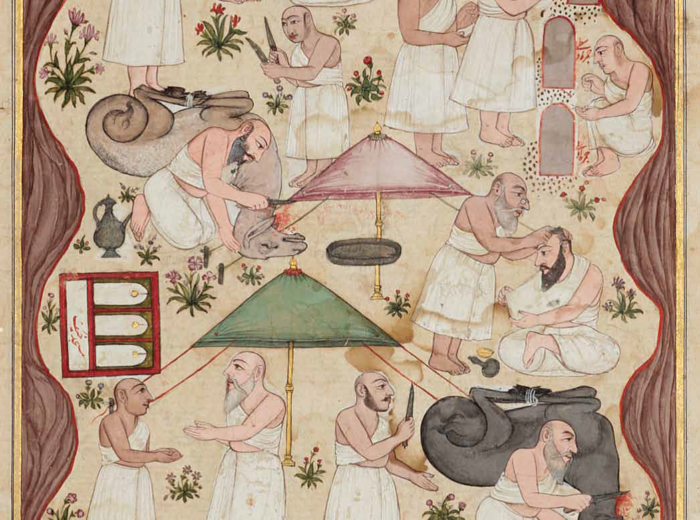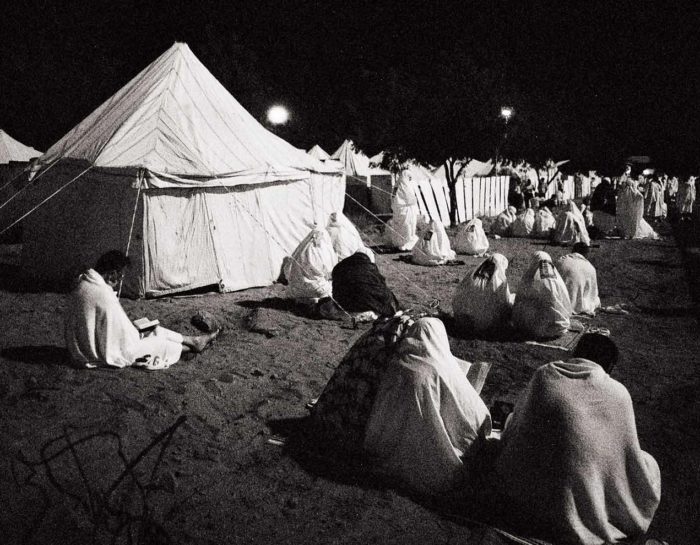Forgiveness, Community and Patience
"Hajj is 'Arafat"
The zenith of Hajj is the procession several miles east of Makkah, via an overnight camp in the Mina valley, to the plain of 'Arafat. Here Prophet Adam is said to have met again with Eve after the Fall. Like the mother and father of humanity, pilgrims repent of their sins and pray on Jabal al-Rahma (the Mount of Mercy).
Here, in his time, Prophet Muhammad (pbuh) also gave his farewell sermon. Some pilgrims shade from the intense heat of the day in tents while others participate in solemn congregational standing (wuquf), supplicating from noon until sunset.
If you are not able to attend Arafat then your Hajj is not complete, so attending Arafat within the specific time is one of the obligations of Hajj, so Arafat is significant. ... We have tried; the two times that I went I couldn't go to the masjid itself. By the time we reached it it's almost complete and then go you go as close as possible.
Anticipating the End of Time
The sheer size and scale of the gathering on the open plain at ‘Arafat has a profound impact on many pilgrims. One British Muslim described feeling intensely “part and parcel of this sea that is before me, the sea of humanity”.
Hajj points forward in time to the gathering of all humanity at 'Arafat on Yawm al-Qiyamat (the Day of Judgement). So, perhaps for older pilgrims especially, it is a powerful reminder of their ultimate destiny. As a journey of purification which ends with pilgrims reborn as sinless as a new born baby, Hajj is a preparation for the Hereafter.
You see so many people from different angles, from different parts of the world, different colours and they came for the same thing, nothing else, just to please Allah, and perform Hajj.
Stonings and Sacrifice
Having collected stones overnight at Muzdalifa, the pilgrims return to Mina to stone the three pillars (jamaraat). This, and the animal sacrifice that seals Hajj, commemorate Allah's testing of Ibrahim as he bound Isma'il and rejected Satan's temptations.
Pilgrims try their best to follow the example of Ibrahim. However, some find that the physical realities of completing Hajj test them to their limits, despite modern conveniences. Many counsel: "You have to be patient here, then, in the your life you're patient. It's good for you".
Yeah, so, Muzdalifah ... it was significant, because you're picking up the stones. And as you pick them up, you're thinking of a sin that you want to eliminate. So, what does this stone represent to me and what do I want to get rid of?



